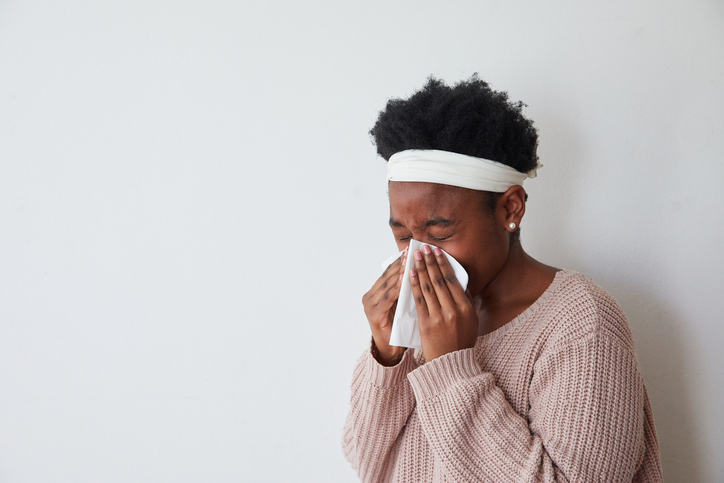
Source: PICHA Stock / Getty
While influencers take their photos of Super Blooms, going out of their way to immerse themselves in flowers and grass, many individuals stay far, far away from anything like that this time of the year – allergy time, that is. Tree pollen comes out in full force in March and April, and grass pollen hits us in May, sometimes sticking around through July. Maybe if this were the year 2019 or before, waking up with the sniffles wouldn’t be too much cause for concern. You’d just know it was allergies. But since COVID-19 took the world by storm, any symptom at all in the nose/chest/throat can make a person very worried. In cold and flu season, you worry every cough is COVID-19, and just when you think you can get a break from those concerns, allergy season makes you question your sneezes.
The CDC did publish this helpful Venn diagram detailing where the overlap exists between allergy symptoms and COVID-19 symptoms. The good news is that there’s a lot of overlap, so what you think is COVID-19 could be allergies. The bad news is…there’s a lot of overlap, so what you think is allergies could be COVID-19. While it sheds some light on the situation, the Venn diagram doesn’t quite go into enough detail, so we consulted some medical sources to get more clarity on the differences between COVID-19 and allergy symptoms.

Source: Marko Geber / Getty
Sore throat
Could be either but more common with COVID-19
If you have a sore throat, you may panic because, like for many people, a sore throat may be the first sign you’re getting sick. The Venn diagram does say COVID-19 and allergies can cause a sore throat. However, Mayo Clinic goes into further detail, explaining that a sore throat from allergies is rare, while a sore throat with COVID-19 is common. If you do have a sore throat due to allergies, it’s likely postnasal drip causing it. Postnasal drip inflames and irritates the throat. It’s most common at night, when you lie down, and gravity makes the extra mucus your body creates to fight off pollen drip down your throat. Since it happens at night, you’ll notice sore throats related to allergies are strongest in the morning. A COVID-19 sore throat can last all day.


